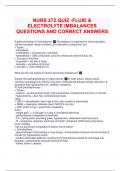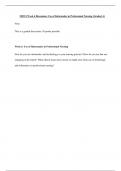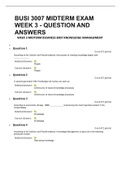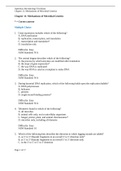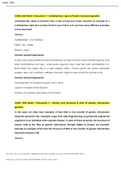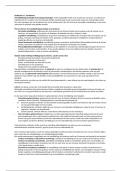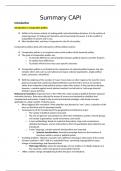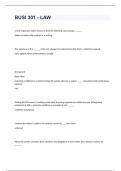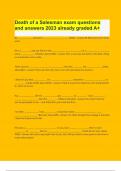Exam (elaborations)
NURS 272 QUIZ -FLUID & ELECTROLYTE IMBALANCES QUESTIONS AND CORRECT ANSWERS
- Course
- Institution
Explain the basics of fluid balance. *fluid balance is important for temp regulation, nutrient transport, waste excretion, join lubrication, protections, etc! > Types... - intracellular - extracellular = intravascular, interstitial - transcellular = CBS, pericardial, synovial, intraocular, pleur...
[Show more]
